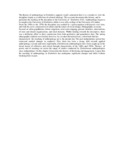Please use this identifier to cite or link to this item:
https://cris.library.msu.ac.zw//handle/11408/1302Full metadata record
| DC Field | Value | Language |
|---|---|---|
| dc.contributor.author | Muzvidziwa, Victor N. | en_US |
| dc.date.accessioned | 2016-05-13T13:15:51Z | - |
| dc.date.available | 2016-05-13T13:15:51Z | - |
| dc.date.issued | 2006 | - |
| dc.identifier.isbn | 9781842777626 | - |
| dc.identifier.uri | http://hdl.handle.net/11408/1302 | - |
| dc.description.abstract | The history of anthropology in Zimbabwe supports Asad's contention that it is a mistake to view the discipline simply as a reflection of colonial ideology. This account documents this history, and in particular the teaching of the discipline at the University of Zimbabwe (UZ). Anthropology began to be taught at the University of Zimbabwe whilst it was still a college of the University of London.From the 1950s to the 1970s the discipline was marked by a preoccupation with process over time,and with the active construction of culture and the nature of social change. Ethnographic accounts focused on urban populations, labour migration, rural cash cropping, peasant identities, interventions of state and church organisations, and rural domains. Whilst tending towards the descriptive, there was a deliberate effort to draw conclusions from both qualitative and quantitative data. The strong ethnographic tradition was limited, however, by a weaker theoretical base, a drawback that has characterised the teaching of anthropology up to the present day The post-independence period has witnessed marked changes in emphasis. First, there has been a strong shift towards applied anthropology; second, and more importantly, Zimbabwean anthropologists have been caught up in the broad stream of reflective and critical thought characteristic of the 1980s and 1990s. Themes of power and of meaning cut across the range of studies conducted by Zimbabwean anthropologists since independence. In this chapter I document this history of theorising and engagement. I argue that the teaching of anthropology in Zimbabwe has undergone significant changes and shifts without breaking from its past. | en_US |
| dc.language.iso | en | en_US |
| dc.publisher | CODESRIA | en_US |
| dc.relation.ispartofseries | African anthropologies: history, critique and practice.;p.99-113. | - |
| dc.subject | Teaching, anthropology, Zimbabwe. | en_US |
| dc.title | The teaching of anthropology in Zimbabwe over the past forty years: continuities and discontinuities. | en_US |
| dc.type | text | en_US |
| item.languageiso639-1 | en | - |
| item.openairecristype | http://purl.org/coar/resource_type/c_18cf | - |
| item.openairetype | text | - |
| item.fulltext | With Fulltext | - |
| item.cerifentitytype | Publications | - |
| item.grantfulltext | open | - |
| crisitem.author.dept | Midlands State University | - |
| Appears in Collections: | Book Chapters | |
Files in This Item:
| File | Description | Size | Format | |
|---|---|---|---|---|
| anthropology in zimbabwe.pdf | Abstract | 16.69 kB | Adobe PDF |  View/Open |
Page view(s)
88
checked on Apr 8, 2025
Download(s)
36
checked on Apr 8, 2025
Google ScholarTM
Check
Altmetric
Items in MSUIR are protected by copyright, with all rights reserved, unless otherwise indicated.



